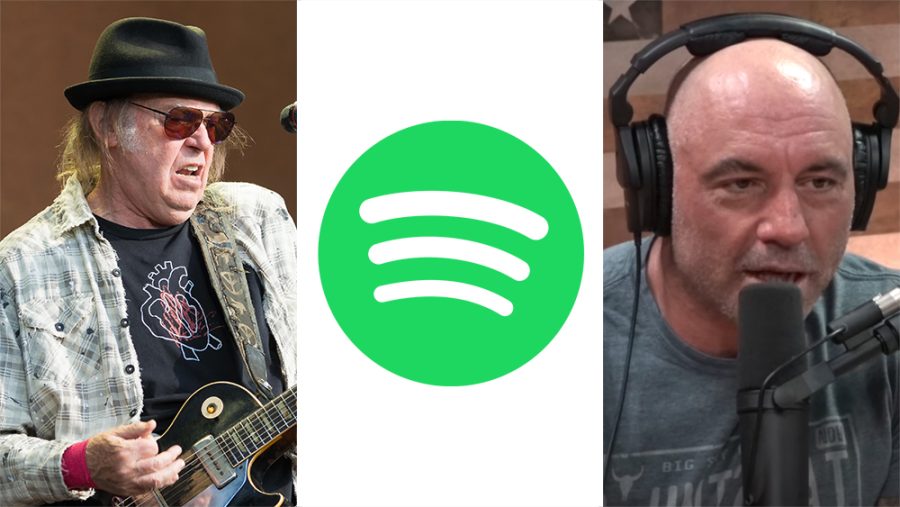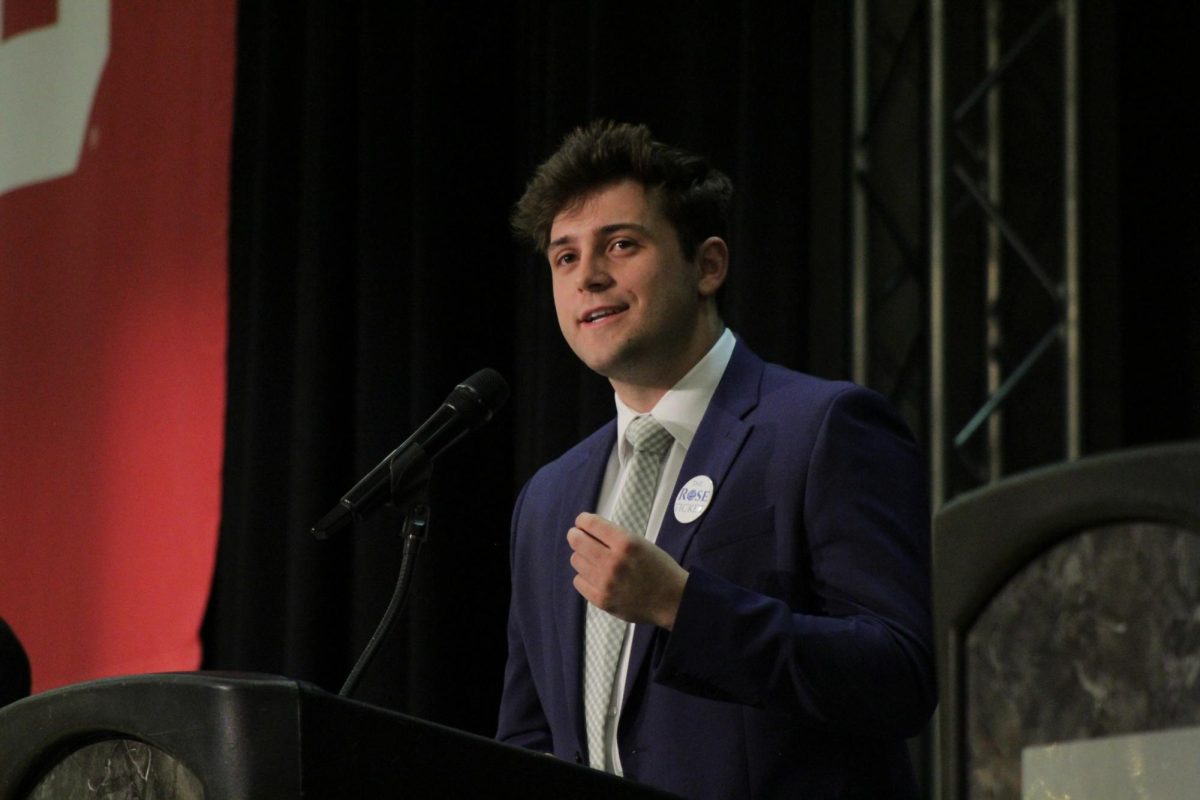Criticism Heats Up in the Fallout of Rogan vs Young vs Spotify
February 21, 2022
Neil Young ordered that his work be removed from Spotify in an open letter on Jan. 24. The issue: the company’s allegiance to top podcaster Joe Rogan. Rogan has been scrutinized for advocating for the use of ivermectin, an unapproved COVID-19 treatment, and for suggesting that young people do not need to get vaccinated.
Rogan scored an exclusive $100 million deal with Spotify for “The Joe Rogan Experience.” Young expressed frustration over Spotify’s lax control of misinformation in the letter announcing his blunt departure.
Laurel Canyon’s Exodus
In a show of solidarity, other prominent artists have followed Young’s lead in cutting ties with Spotify. Joni Mitchell removed her music from the streaming service on Friday, Jan. 28. Following Mitchell was Crazy Horse and E Street Band guitarist Nils Lofgren; Lofgren collaborated with Young on 1969’s “Everybody Knows This Is Nowhere.”
On Feb. 1, Graham Nash of Crosby, Stills, Nash & Young announced his decision to also remove his solo work. Former bandmate David Crosby publicly supported Nash’s decision, but cannot remove his own work since he no longer owns it. More artists may follow the trend in the following weeks.
The Cash Funnel
According to the New York Times’ Ben Sisario, Spotify’s payment system is “a complicated and opaque formula.” After the company takes its share, about 3 out of every 10 dollars, the rest goes to rights holders. Record labels and publishers then take their shares — often leaving artists with meager profits.
The last slice of Spotify’s pie isn’t much more than a crumb. High profile artists (à la Drake, Billie Eilish and Taylor Swift) earn significant shares of users’ monthly payments from high streaming numbers. Spotify’s pooling methods mean that users’ monthly subscriptions go to those artists regardless of their listening habits.
Fresh Anger for Old Problems
Spotify’s relationship with artists has never been equitable — this is no revelation. Young’s letter is the latest fuel added to the fire of anti-streaming sentiment. Music fans and industry skeptics have criticized streaming services since their beginnings.
Unlimited streaming, which Spotify began in 2011, gave users total listening control with “pick and play.” No one has looked back since considering that consumer demands have changed with the streaming revolution. More services followed, with Tidal launching in 2014 and Apple Music in 2015. These platforms have only expanded further since the mid-2010s.
Implied in Young’s letter is the need for the streaming revolution to reinvent itself once again. The holy grail of access for independent artists, podcasters and fans is also a profit-sucking misinformation super-spreader. Users and artists like Young, Mitchell, Lofgren and Nash are calling for much needed accountability and transparency. On Jan. 30 Spotify announced it would introduce an advisory warning for COVID-19 content. This is a band-aid fix that only addresses the catalyst of a more complex conversation.
Spotify has yet to address long standing issues with its service. Unfair artist payment and poor misinformation control are leading the list of grievances prompting users and artists to say “sayonara.” One thing is certain: the streaming giant must make changes to the way it approaches social responsibility to stay in favor.












